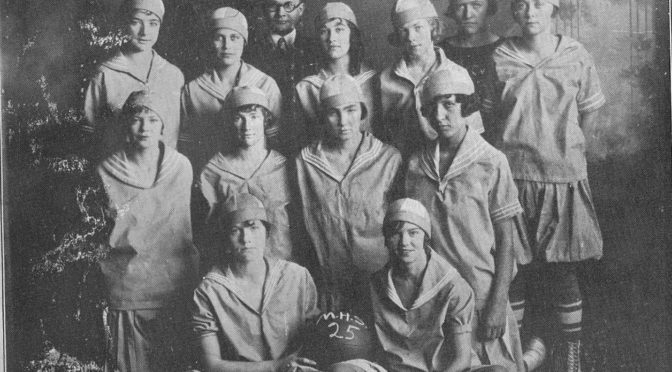Hearing the female voice in today’s society
Tamara McConnell
Writer
Over the course of the century, women have steadily carved their legacy as hard-working and dependable members of society despite the many challenges they faced along the way.
Stereotypically, women in the early stages of the nation were expected to stay home and nurture the children instead of becoming working members of the community.
The stereotypes placed upon women have greatly shaped the world’s views on female work ethic, prompting a history of women receiving lesser pay than men.
Women were also banned from voting in national elections before 1920 in America and were often discriminated against when running for political offices.
With the many gender inequalities plaguing the country, women took a stand against the prejudice, leading to spikes in women’s rights activities.
Moving to overcome the social discrepancies between men and women has since been a long-fought movement that can be dated back to the founding of the nation, taking decades before significant progress would be made.
Against all odds, women have shown their ability to develop change in the environment around them, often being credited with sparking the Civil Rights Movement in 1955 when Rosa Parks refused to give up her bus seat to a white man in Montgomery, Alabama.
With the help of trailblazers such as Elizabeth Stanton and Susan B. Anthony leading women’s fight for equality and women’s suffrage (right to vote) movements in the late 1840s, the nation would ratify the 19th amendment nearly 80 years later, allowing women the right to vote.
Today, 2020 marks the 100th year anniversary since the 19th amendment was passed and symbolizes an important mile-marker for the advancement of gender equality.
Although women still receive fewer economic, educational and political opportunities as opposed to their male counterparts globally, according to The Peace Corps, 2020 has seen a 121% increase in female political membership since 1923.
Among a 2019 statistical survey, American students who go on to receive a higher education had women aged 17-44 take up 35% of those numbers, increasing 4% since 1940 according to Statista – an education and science firm.
In 1921, women aged 16 and over made up 20% of the United States workforce, compared to today’s 47% according to the U.S Bureau of Labor Statistics.
The fight for women’s rights has given rise to a number of female leaders, such as culture icon and associate justice Ruth Bader Ginsburg.
Also known as “The Notorious R.B.G.,” a nickname given for her history of opera and rock music as well as her work in interpreting the Constitution, Ginsburg was an associate justice of the Supreme Court from 1993 until her death on September 18, 2020.
Being one of only four women to have served on the Supreme Court since its founding in May 1789 and becoming the longest-serving Jewish justice, Ginsburg has been a central figure in the uphill-battle for women’s rights.
Before her tenure as a Supreme Court justice, Ginsburg founded the Women’s Right Project in 1971 – a division of the American Civil Liberties Union working towards women empowerment.
Ginsburg’s many pursuits to decreasing the rift in gender opportunities has made her a certified pioneer in her field and is currently the only woman to be laid in state in the U.S. Capitol.
The City of Marlow has its own distinguished female leaders having elected Lesley James as the Chamber of Commerce President as of 2019.
Female membership in the City Council has seen three women throughout its tenure, most recently being LaQuita Craft from 2005-2010.
As the writer of the “Chamber Chatter” column of the Marlow Review, Debbe Ridley expressed the growing representative role women played in Marlow’s history.
“There have been women active in the betterment of this community throughout the years of our growth,” explained Ridley. “In fact, I have heard it said many times from those who have studied Marlow’s history that throughout the saga of the Marlow brothers and Marlow family – while they didn’t get the “headlines” – the women in that family were actually as brave as the men and true heroes in their own right.”
Having confidence that students can lead gender equality to greater heights, Marlow High School senior Aubrey Topping spoke out about the importance women have in standing up against long-standing discrimination.
“I believe women standing up against the injustices the world has to offer is important because we have a duty to the next generation towards making society a better place to live in,” explained Topping. “When we, as women, voice our concerns and make movements in ending discrimination, we are setting a precedent for the next generations to come.”
Across its decades, MHS has offered a variety of female-based sports and extracurricular activities, including the Lady Outlaw softball team as well as the girls’ golf team.
The earliest record of a female based team at MHS was the 1921-1922 girl’s basketball team having finished their season 7-4 and were invited to the Women’s State Tournament at the University of Oklahoma with Pearl Chatt as the coach.
Going against the negative worldview on female work ethic, in the 2020-21 class elections held at Marlow High School to appoint a class president, vice president and secretary, each grade voted on an all-female court.
Throughout time, women have shaped histories across the globe and have often changed world views for the better.
Despite the many stereotypes placed on women, future female activism is expected to grow for the foreseeable future, and as the younger generation of women progress in their lifetime, they will continue to build on past generations’ movements for gender equality.
